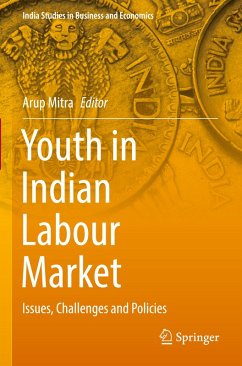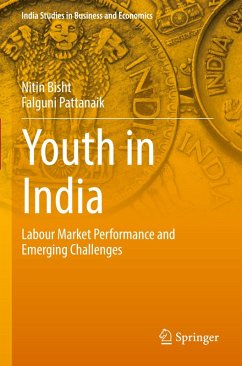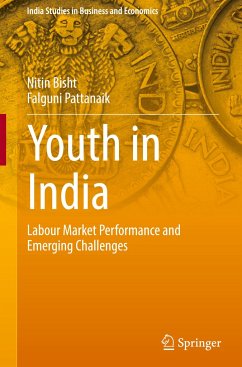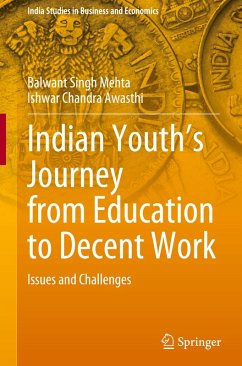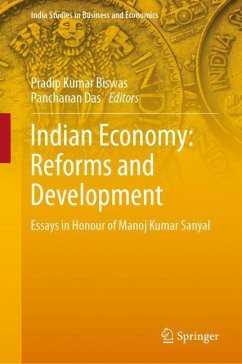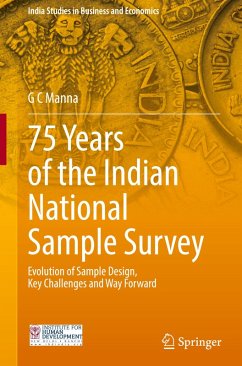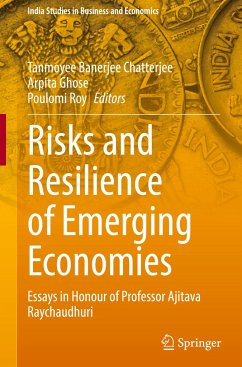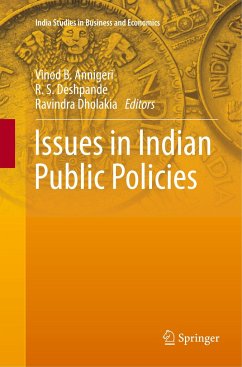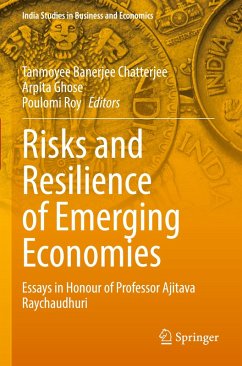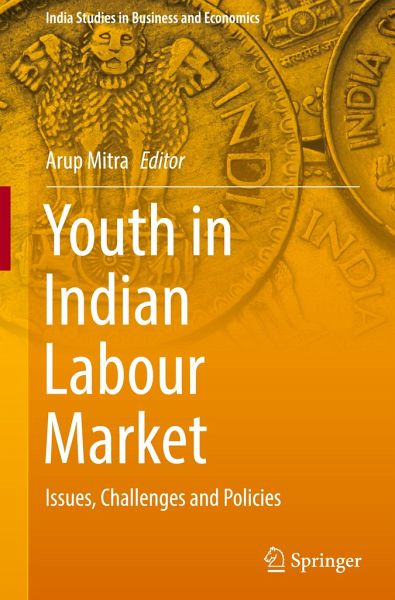
Youth in Indian Labour Market
Issues, Challenges and Policies
Herausgegeben: Mitra, Arup

PAYBACK Punkte
65 °P sammeln!
This book addresses labour market participation issues of youth in India, and follows an inter-disciplinary approach. It carries out both quantitative and qualitative assessments for an in-depth understanding of these issues. It collates a wide range of concerns both from supply and demand side, and instead of reflecting on the empirical questions only, the book reflects on various analytical questions as well. Some other challenges being discussed here are inadequacy of skill and compulsion to participate in the labour market, concentration in activities with excess supplies of labour, unreco...
This book addresses labour market participation issues of youth in India, and follows an inter-disciplinary approach. It carries out both quantitative and qualitative assessments for an in-depth understanding of these issues. It collates a wide range of concerns both from supply and demand side, and instead of reflecting on the empirical questions only, the book reflects on various analytical questions as well. Some other challenges being discussed here are inadequacy of skill and compulsion to participate in the labour market, concentration in activities with excess supplies of labour, unrecognised work experience, lack of upward mobility, and working with information asymmetry. Caste and gender disadvantages are an instrumental part of the book. Problems of educated and uneducated youth are quite different and the book analyses them separately. Besides, it refers to a wide range of issues relating to occupational flexibility. It also discusses skill imparting institutions and themajor lacuna associated with their functioning. Social unrest and threats to the prospects of future growth in the absence of adequate youth employment are some of the economic and political issues which the book covers. Unraveling the threads of the concerns mentioned above, the book finally comes up with policy suggestions. It is a great resource for researchers, industry watchers, and policy makers who are interested in inclusive and sustainable growth.



